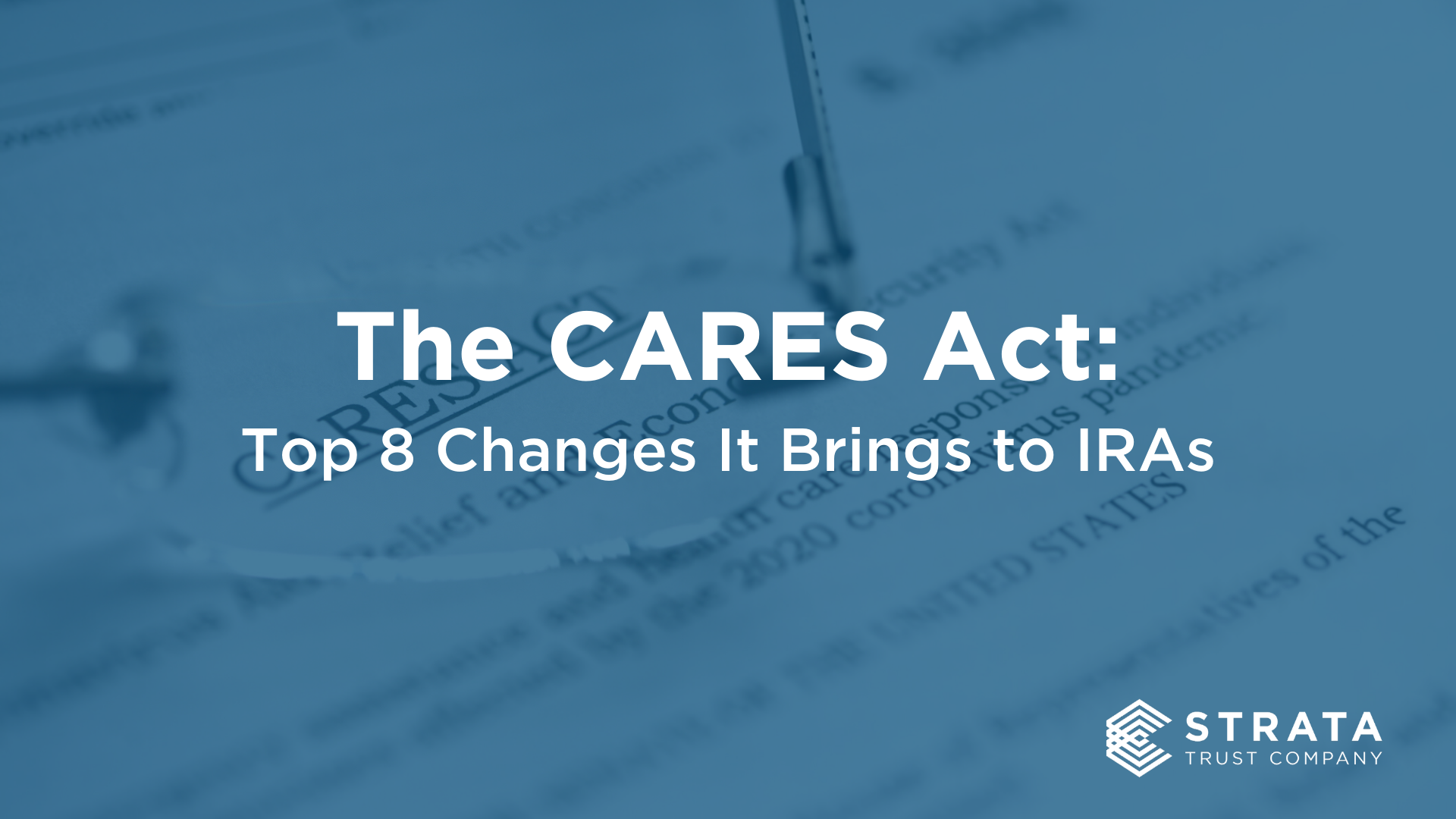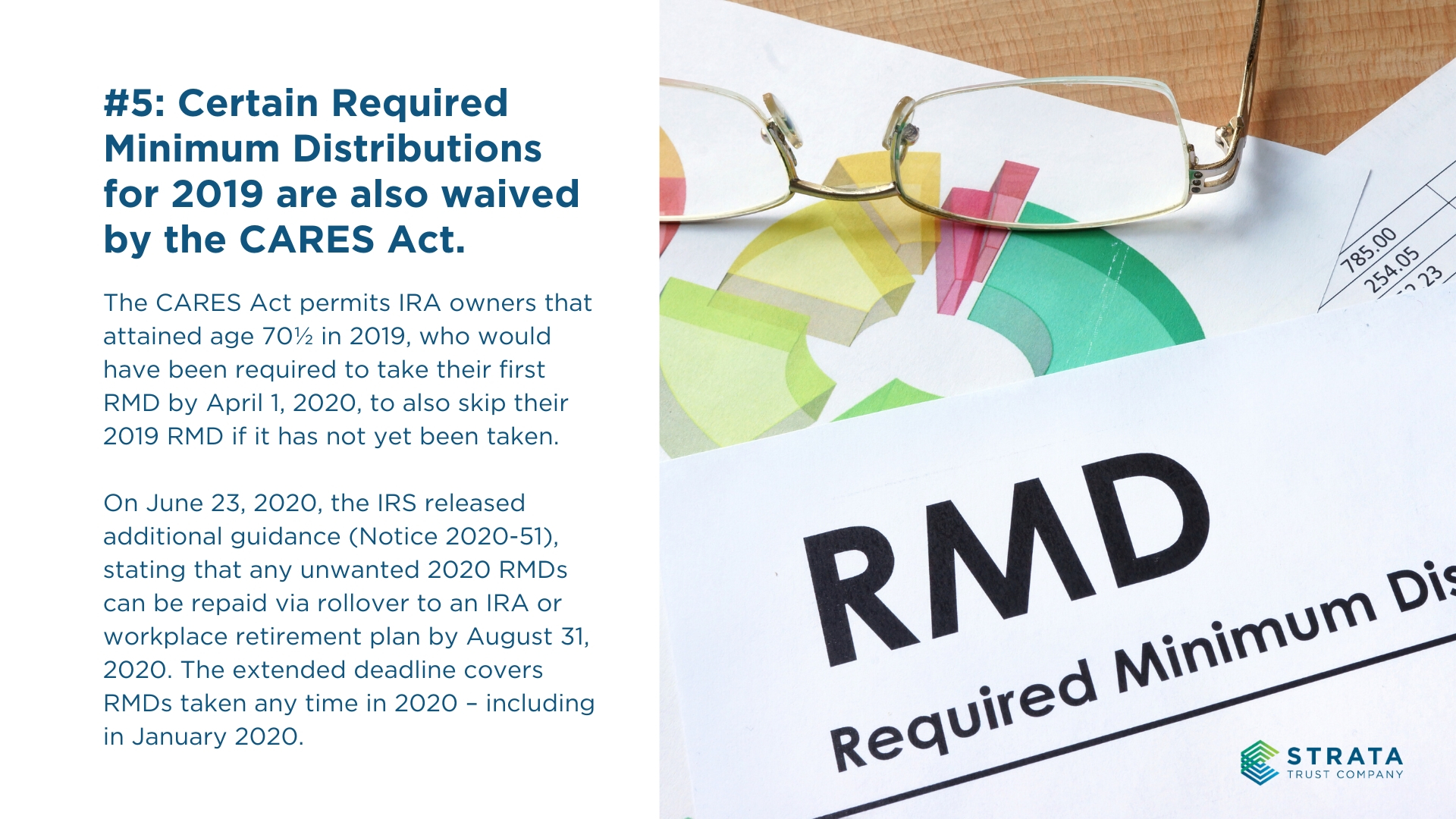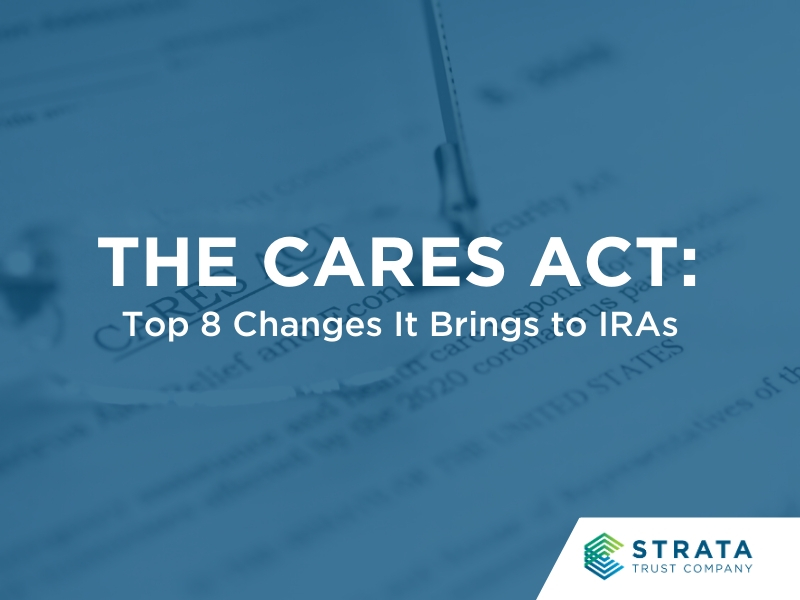On March 27, President Trump signed the Coronavirus Aid, Relief and Economic Security (CARES) Act into law. The $2.2 trillion aid represents an unprecedented initiative to support the U.S. economy during the uncertainty and stress caused by the COVID-19 pandemic. Although the CARES Act is quite long and detailed, we’ve put together a quick recap of the top 8 provisions that impact IRA owners as it relates to distributions and contributions—
#1: Required Minimum Distributions for 2020 are waived by the CARES Act.
The most significant change included in the CARES Act is that it waives the RMD requirement for 2020 for individuals over age 72 (or that turned 70½ before January 1, 2020). This includes minimum distributions that would otherwise have been required for Traditional accounts, including Simplified Employee Pension (SEP), and Savings Incentive Match Plan for Employees of Small Employers (SIMPLE), IRA owners, IRA beneficiaries and for Roth IRA beneficiaries. This means, if you don’t want to take a distribution this year while the stock market is down, you can skip it.
#2: Individuals under age 59½ impacted by the coronavirus may take penalty-free distributions during 2020.
The CARES Act includes a provision that allows an affected IRA owner under age 59½ to take one or more coronavirus-related distributions from their IRA during 2020 without incurring the additional 10% early withdrawal penalty. These distributions have a combined $100,000 limit per individual if taken from more than one retirement plan. Also, you have the ability to include the income from the distributions ratably over a three-year period and repay the amount within three years after taking them. Make sure you meet the qualifying conditions.
#3: Distributions taken for coronavirus purposes may be recontributed (as a rollover contribution) within 3 years after taking them.
One nice feature of the CARES Act is that it allows taxpayers to recontribute the funds they withdrew to an eligible retirement plan, as a rollover contribution, in one or more payments within three years. Even better is that the recontributed amounts won’t count toward the maximum contribution limit in the year that the funds are recontributed to a tax-deferred retirement account.
#4: The combined limit is $100,000 per individual for distributions taken as coronavirus withdrawals under the CARES Act.
An individual’s combined $100,000 withdrawal limit applies whether the distributions are taken from one or more retirement plans.
#5: Certain Required Minimum Distributions for 2019 are also waived by the CARES Act.
The CARES Act permits IRA owners that attained age 70½ in 2019, who would have been required to take their first RMD by April 1, 2020, to also skip their 2019 RMD if it has not yet been taken. On June 23, 2020, the IRS released additional guidance (Notice 2020-51), stating that any unwanted 2020 RMDs can be repaid via rollover to an IRA or workplace retirement plan by August 31, 2020. The extended deadline covers RMDs taken any time in 2020 – including in January 2020.
#6: Beneficiaries who inherited an IRA and were taking death distributions under the 5-year rule prior to complete the distribution of an inherited IRA will not be required to count 2020 as part of the 5-year period.
These beneficiaries will get 6 years to complete the distribution of an inherited IRA.
#7: Required Minimum Distributions for 2020 now get an extended due date of January 1, 2021.
The CARES Act extends the due date of required minimum distributions (RMDs) that would otherwise be due during the 2020 calendar year.
#8: IRA contributions for 2019 now get an extended due date of July 15, 2020.
The CARES Act extends the due date of 2019 IRA contributions from April 15, 2020, to July 15, 2020, since the deadline for filing 2019 income tax returns was extended to July 15, 2020.
Disclaimer: The information provided herein does not, and is not intended to, constitute personalized financial or legal advice. The contents of the article are for general informational purposes only and should not be relied or acted upon without specific professional legal or financial advice, based upon an individual’s situation.














